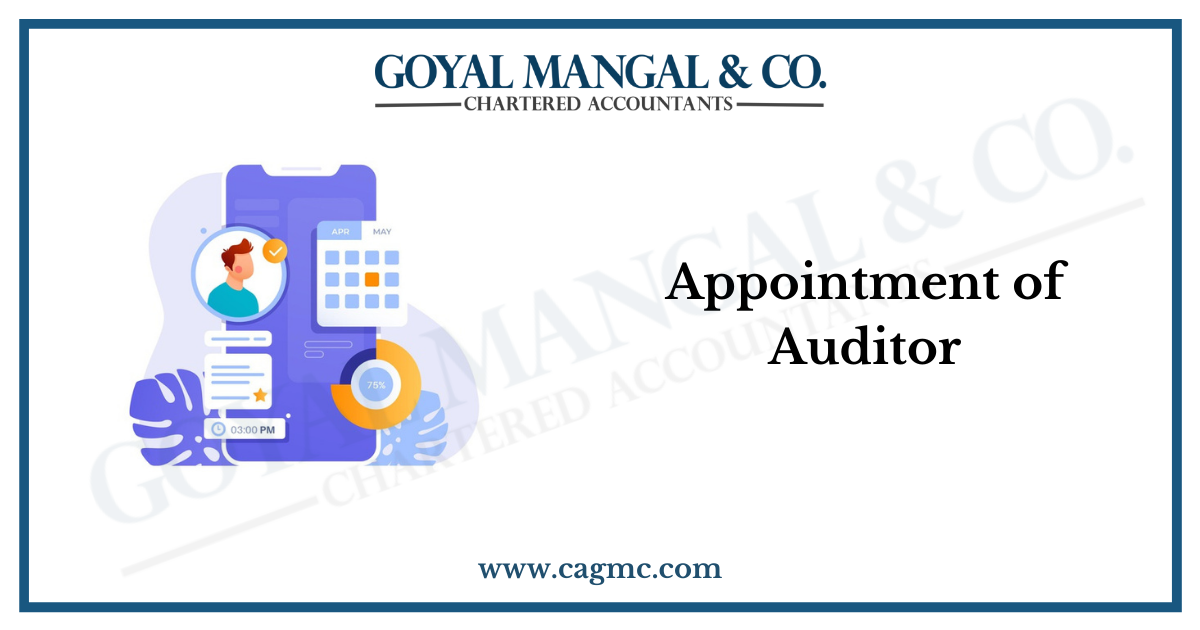An auditor is an independent person authorized by the Company to review and verify the accuracy of its financial records as well as to ensure that Company comply with tax laws properly. They work in a way to protect businesses from frauds by pointing out the discrepancies in the accounting methods and, on occasion, work on a consultancy basis and helps the organizations to find ways to boost its operational efficiency. Auditors work differ and varies from industries to industries

The process carried out by the Auditor in assessing Books of Accounts and the financials of the Company is called as Auditing. Once, the Audit process is completed by the Auditor a report is presented stating the true and fair view on the Books of Accounts of the Company is presented by the Auditor called as Auditors Report. The auditor may give a Qualified Opinion or an Unqualified Opinion in its Report.
Qualified Opinion means where the auditor points out that the Financial Statement of the Company does not provide the true and fair view whereas the Unqualified Opinion means that a statement confirming that the Company is complying with norms without providing any judgment or opinion.
Now, lets being towards the legal summary of appointment of Auditor by a Company.
Executive Summary
The provisions for appointment of an Auditor are covered under Section 139 of Companies Act, 2013 which further classifies the Appointment of an Auditor under various circumstances:-
Appointment of First Auditor
As per Section 139(6) of the Companies Act, 2013 a Company through its Board of Directors shall within 30 days of its Incorporation appoint an individual or a firm as an auditor of the Company . If the Board of Directors of the Company fails to appoint the auditor within the prescribed time then they shall inform the Members of the Company who shall have power to appoint the same within 90 days by conducting an Extra Ordinary General Meeting by way of passing a Ordinary Resolution to that effect and such Auditor shall hold the office till the conclusion of 1st Annual General Meeting.
As per Section 142(1) of the Companies Act, 2013 the remuneration of the First Auditor shall be decided by the Board of Directors of the Company.
Process of Appointment of First Auditor by BOD along with the Forms to be filed
| S. No. | Particulars | Time Limit | E-form along with attachments |
| 1. | Conducting a Board Meeting and passing of necessary Board Resolution | Within 30 days of Incorporation | – |
| 2. | Once, the Board Resolution is passed, filing the a notice of appointment with the concerned ROC informing the appointment of auditor. | Within 15 days of appointment | ADT-1
|
| 3. | If the Board of Directors fails then Convening an Extra Ordinary General Meeting within prescribe time and passing of necessary Ordinary Resolution and filing the same with the concerned ROC informing the appointment of auditor. | Within 15 days of appointment | ADT-1
|
Appointment of Auditor in General Meeting
As per Section 139(1) of the Companies Act, 2013 every Company at its first Annual General Meeting shall appoint an individual or a firm as its Auditor who shall hold the office till the conclusion of 6th Annual General Meeting of the Company who manner and procedure of selection and appointment will be in accordance with the Rule 3 of Companies (Audit and Auditors) Rules, 2014.
*Before appointing any person or firm as an Auditor he/it shall comply with the provision of SECTION 141 of the Companies Act, 2013 which are represented herein under:-
SECTION – 141 (ELIGIBILITY, QUALIFICATIONS AND DISQUALIFICATIONS OF AUDITORS)
-
- A person shall be eligible for appointment as an auditor of a company only if he is a chartered accountant: Provided that a firm whereof majority of partners practicing in India are qualified for appointment as aforesaid may be appointed by its firm name to be auditor of a company.
- Where a firm including a limited liability partnership is appointed as an auditor of a company, only the partners who are chartered accountants shall be authorized to act and sign on behalf of the firm.
- The following persons shall not be eligible for appointment as an auditor of a company, namely:—
- a body corporate other than a limited liability partnership registered under the Limited Liability Partnership Act, 2008;
- an officer or employee of the company;
- a person who is a partner, or who is in the employment, of an officer or employee of the company;
- a person who, or his relative or partner—
- is holding any security of or interest in the company or its subsidiary, or of its holding or associate company or a subsidiary of such holding company: Provided that the relative may hold security or interest in the company of face value not exceeding one thousand rupees or such sum as may be prescribed;
- is indebted to the company, or its subsidiary, or its holding or associate company or a subsidiary of such holding company, in excess of such amount as may be prescribed; or
- has given a guarantee or provided any security in connection with the indebtedness of any third person to the company, or its subsidiary, or its holding or associate company or a subsidiary of such holding company, for such amount as may be prescribed;
- a person or a firm who, whether directly or indirectly, has business relationship with the company, or its subsidiary, or its holding or associate company or subsidiary of such holding company or associate company of such nature as may be prescribed;
- a person whose relative is a director or is in the employment of the company as a director or key managerial personnel;
- a person who is in full time employment elsewhere or a person or a partner of a firm holding appointment as its auditor, if such persons or partner is at the date of such appointment or reappointment holding appointment as auditor of more than twenty companies.
- a person who has been convicted by a court of an offence involving fraud and a period of ten years has not elapsed from the date of such conviction;
- a person who, directly or indirectly, renders any service referred to in section 144 to the company or its holding company or its subsidiary company.
Explanation.—For the purposes of this clause, the term “directly or indirectly” shall have the meaning assigned to it in the Explanation to section 144.
- Where a person appointed as an auditor of a company incurs any of the disqualifications mentioned in sub-section (3) after his appointment, he shall vacate his office as such auditor and such vacation shall be deemed to be a casual vacancy in the office of the auditor.
Process of Appointment of Auditor in General Meeting along with the Forms to be filed
S. No. Particulars Time Limit E-form along with attachments 1. Convening of Annual General Meeting by the Company and passing of necessary Ordinary Resolution – – 2. Once, the Ordinary Resolution is passed, filing the a notice of appointment with the concerned ROC informing the appointment of auditor who shall hold office till conclusion of 6th Annual General Meeting Within 15 days of appointment ADT-1 - Certified True Copy of Board Resolution .
- Consent Letter from the Auditor.
- Declaration from the Auditor that the proposed appointment is within the limits as laid down under the Act
- the list of proceedings against the auditor or audit firm or any partner of the audit firm pending with respect to professional matters of conduct, as disclosed in the certificate, is true and correct.
Companies not allowed to appoint or re-appoint individual or firm as Auditor
For this Section “Appointment ” includes reappointment:-
As per Section 139 read Rule 5 of Companies (Audit and Auditors) Rules, 2014 no listed Company or the such class of Companies as mentioned below
- all unlisted public companies having paid up share capital of rupees ten crore or more;
- all private limited companies having paid up share capital of rupees [fifty]crore or more;
- all companies having paid up share capital of below threshold limit mentioned in (a) and (b) above, but having public borrowings from financial institutions, banks or public deposits of rupees fifty crores or more.
shall appoint or re-appoint the following as Auditor An Individual as Auditor for more than one term of 5 consecutive years and An audit firm for more than two terms of 5 consecutive years.
Auditors not eligible for reappointment
Provided that—
- an individual auditor who has completed his term of 5 consecutive years shall not be eligible to be re-appointed as an auditor in the same company for next five years from the completion of his term;
- an audit firm which has completed two terms of consecutive 5 years shall not be eligible for re-appointment as an auditor in the same company for another five years from the completion of such term:
Also Provided that no audit firm as on the date of appointment shall have a common partner or partners to the other audit firm whose tenure has expired in the same Company immediately preceding the financial year.
Furthermore, provided also that every company, existing on or before the commencement of this Act which is required to comply with the provisions of this sub-section, shall comply with requirements of this sub-section within a period which shall not be later than the date of the first annual general meeting of the company held, within the period specified under sub-section (1) of section 96, after three years from the date of commencement of this Act.


